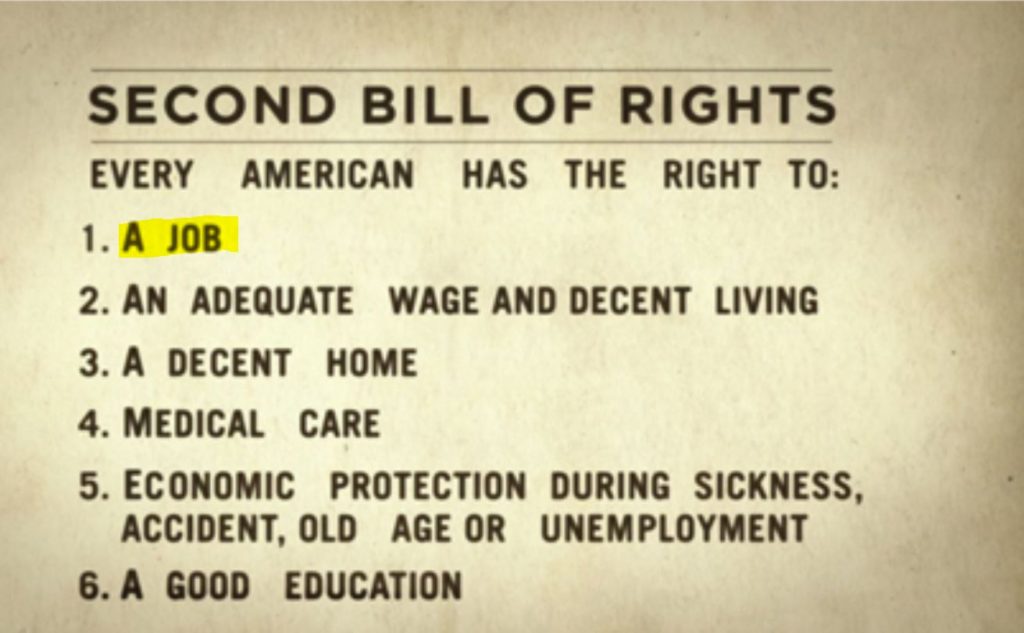We have societies because together we can do better for all than singly. These societies use economic systems as mechanisms to structure distribution of the resources of the nation. These systems are humanmade, and the community must make them in a manner that takes humanity, compassion, willingness to work, and monopoly into account. We must guarantee jobs as rights.
Absent jobs in the private sector, the government must provide a livable wage job to ensure that anyone who wants to work can.
The Nation’s Katrina Vanden Heuvel wrote a prescient piece in the Washington Post titled “Why Democrats should fight for the right to a good job” that is worth a read. She writes,
A Good Jobs Guarantee would be a federally funded, locally administered program. Municipalities and towns, linked with nonprofits, would create community job banks that would organize real jobs with good pay and benefits. By addressing needs largely ignored by private markets, the program would avoid competition with private business. By paying a living wage — most plans call for a minimum of $11 to $15 an hour with benefits — the jobs guarantee would lift the floor under workers, insuring that no one works full-time and remains in poverty.
FDR’s 2nd Bill of Rights is consistent with every American having a guarantee within the economic model. Katrina adds,
The Rev. Martin Luther King Jr. picked up that charge, understanding that economic justice was an essential challenge of the civil rights movement. After King’s assassination, his widow, Coretta Scott King helped build the public pressure that culminated in 1978 with the passage of the Humphrey-Hawkins Full Employment Act, a bill that was diluted in its final passage to make full employment a goal rather than a guarantee.
So why is this needed? Jobs as a right are required especially now?
A central cause is that the United States has an explicit policy that condemns a percentage of the population to unemployment as a way to manage the business cycle. Currently, the Federal Reserve, concerned about the possibility of inflation not yet apparent, is raising interest rates to slow the economy and keep more people out of work.
How would jobs as a right be paid for when dollars are ‘scarce?’
Much of the cost would be paid by savings from the costs of unemployment — unemployment insurance, food stamps, mass incarceration, opioid and drug treatment and policing and more. More would be covered by the increased growth and productivity that would be a direct result of lifting the floor under workers.
When one makes a demand, jobs as a right, the first response from the establishment is that it cannot help, we cannot do it because the resources are not there. America’s infrastructure is in ruins. Many baby boomers will require care for several decades, teachers, and many other professions are stressed because they don’t have enough bodies.
The question we must ask is simple. If there is much work to be done and there are many people that are unemployed, underemployed, or overworked, then if the current economic model prevents that connection or resolution of employment flaws, it is not only flawed and unsustainable but a danger to society.

